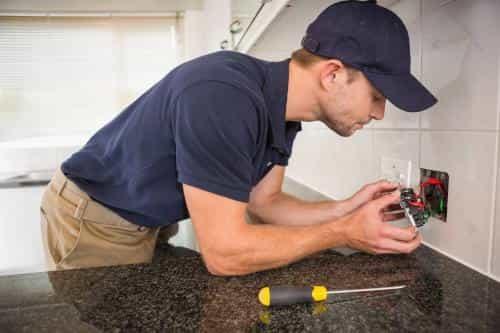What Are Common Electrical Problems in Homes? A Complete Guide
Electrical issues can pose a serious safety hazard if left unaddressed, leading to fire risks, power outages, and costly repairs. What are common electrical problems in homes? Homeowners often experience flickering lights, frequent circuit breaker trips, faulty outlets, or outdated wiring. Identifying these problems early on can prevent further damage and ensure a safe living environment. Electrical problems can arise due to aging systems, improper installations, or increased power demands. In this guide, we’ll explore the most common electrical issues homeowners face and provide solutions to fix them before they become dangerous.
What Are Common Electrical Problems in Homes?
Issues with Wiring and Circuits
Faulty or Outdated Wiring
Old wiring systems can deteriorate over time, leading to overheating and potential fire hazards.Frequent Circuit Breaker Trips
An overloaded circuit or faulty breaker can cause repeated power interruptions in your home.Burning Smells or Scorched Outlets
If you notice a burning smell near an outlet, it could indicate overheating and an urgent need for repairs.Loose or Damaged Outlets
Outlets that spark or feel warm to the touch may signal underlying electrical faults.Flickering or Dimming Lights
Voltage fluctuations or loose wiring connections can cause inconsistent lighting performance.
How to Identify Electrical Issues in Your Home
What Are Common Electrical Problems in Homes? Warning Signs
Buzzing or Humming Sounds
If you hear buzzing from outlets or switches, it may be due to loose wiring or an overloaded circuit.Sparking Appliances or Outlets
Sparks when plugging in devices could indicate faulty electrical components or improper grounding.Lights That Burn Out Quickly
If bulbs frequently burn out, it may be a sign of high voltage or improper wiring connections.Electrical Shocks When Touching Appliances
Even minor shocks from appliances can indicate poor grounding or an issue with the wiring.High Energy Bills Without Increased Usage
Faulty wiring or inefficient electrical systems can lead to unnecessary energy consumption.
Preventing Electrical Hazards in Your Home
What Are Common Electrical Problems in Homes? How to Prevent Them
Schedule Routine Electrical Inspections
Having an electrician check your home’s wiring can prevent minor issues from becoming major problems.Upgrade Outdated Wiring Systems
Homes with old electrical systems should be rewired to handle modern power demands.Use Surge Protectors for Sensitive Devices
Surge protectors help prevent damage from power fluctuations and lightning strikes.Avoid Overloading Electrical Circuits
Plugging too many devices into a single circuit can lead to overheating and breaker trips.Keep Electrical Panels Accessible and Updated
Ensure your electrical panel is up to code and easy to access for maintenance and emergencies.
When Should You Call an Electrician?
Signs You Need Professional Help
Frequent Electrical Surges
If your home experiences repeated power surges, an electrician should inspect your system.Constant Tripped Breakers
When resetting breakers becomes a daily occurrence, it’s time for a professional assessment.Burning Smells or Smoke from Outlets
Any burning odor coming from electrical outlets should be addressed immediately.Shocking or Hot Outlets
If outlets feel hot or shock you, they may need rewiring or replacement.Unexplained Power Loss
Sudden power outages in certain areas of your home could indicate faulty wiring or overloaded circuits.
DIY Fixes vs. Professional Electrical Repairs
Simple Electrical Fixes You Can Do Yourself
Replacing a Light Switch
A worn-out light switch can be replaced with basic tools and minimal experience.Installing Outlet Covers
Covering exposed outlets can enhance safety, especially in homes with children.Resetting a Tripped Circuit Breaker
If a breaker trips, safely reset it by flipping the switch back into position.
When to Call a Licensed Electrician
Rewiring the Home
Replacing outdated wiring is a job that requires professional expertise to ensure safety and compliance.Upgrading the Electrical Panel
If your panel is outdated or unable to support modern appliances, an electrician should perform the upgrade.Installing New Circuits for Major Appliances
Large appliances like air conditioners or electric water heaters need dedicated circuits.
Conclusion
So, what are common electrical problems in homes? Issues like faulty wiring, tripping breakers, and flickering lights are signs that your electrical system needs attention. Addressing minor issues early can prevent costly repairs and reduce the risk of fire hazards. Some small fixes, such as replacing light switches, can be handled by homeowners, but more complex problems require a professional. Regular electrical inspections and proper maintenance can help keep your home safe and energy-efficient. Ignoring electrical issues can lead to dangerous situations, so it’s essential to act quickly when warning signs appear. Contact us today for electrical repair services in North Kansas City and nearby areas.

